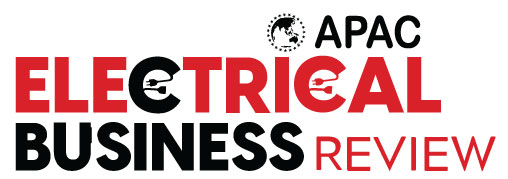Thank you for Subscribing to Electrical Business Review Weekly Brief
The Guardian of Electrical Safety: Exploring the Importance of Electrical Enclosures
Electrical Business Review | Monday, May 22, 2023
Electrical enclosures are indispensable elements in the electrical business landscape, ensuring electrical systems' safety, protection, and reliability.
FREMONT, CA: Safety is paramount in the realm of electrical systems. Electrical enclosures serve as sturdy and protective guardians, ensuring the well-being of electrical equipment and individuals. These enclosures play a vital role in safeguarding electrical components from environmental factors, preventing accidental contact, and minimizing the risk of electrical hazards. This article delves into the significance of electrical enclosures and their impact on the electrical business outlook.
1. Protection Against Environmental Factors: Electrical enclosures shield electrical equipment from various environmental factors, such as dust, moisture, chemicals, and temperature fluctuations. Enclosures prevent foreign substances from infiltrating sensitive electrical components by providing sealed and robust housing. This protection helps maintain the reliability and performance of equipment, extending its lifespan and reducing the risk of malfunction or failure.
Stay ahead of the industry with exclusive feature stories on the top companies, expert insights and the latest news delivered straight to your inbox. Subscribe today.
2. Safety and Prevention of Electrical Hazards: Electrical enclosures prevent accidental contact with live electrical parts. They serve as a barrier, isolating energized components from human interaction. Enclosures are designed with safety in mind, incorporating lockable doors, tamper-resistant fasteners, and insulation to reduce the risk of electrical shocks and accidents. Properly selected and installed enclosures help create a safe working environment for electrical personnel and reduce the potential for injuries.
3. Compliance with Standards and Codes: The electrical industry is governed by many standards and codes that outline specific requirements for equipment protection. Electrical enclosures ensure compliance with these regulations by meeting designated standards, such as National Electrical Manufacturers Association (NEMA) ratings or International Electrotechnical Commission (IEC) standards. Compliance promotes safety and ensures that electrical installations adhere to legal and industry requirements, enhancing credibility and minimizing liabilities.
4. Customization and Adaptability: Electrical enclosures offer customization options for specific applications and environments. They are available in various sizes, materials, and configurations to accommodate diverse electrical equipment and installation requirements. Enclosures can be designed for indoor or outdoor use, corrosive environments, hazardous locations, and extreme weather conditions. This adaptability allows businesses to select enclosures that best meet their unique needs, ensuring optimal equipment protection and functionality.
5. Maintenance and Accessibility: Electrical enclosures provide a convenient platform for equipment maintenance and inspections. They offer easy access to electrical components, allowing for efficient troubleshooting, repairs, and routine maintenance tasks. Enclosures with transparent windows or viewing panels enable visual inspections without compromising safety. Additionally, enclosures can be equipped with cable entry points, ventilation systems, or removable panels, facilitating equipment servicing and reducing downtime.
6. Integration of Advanced Technologies: Electrical enclosures are not limited to passive protection; they can also integrate advanced technologies to enhance functionality and monitoring capabilities. Enclosures can incorporate cooling systems to regulate internal temperatures, preventing overheating and ensuring optimal equipment performance. Furthermore, they can be equipped with monitoring devices, such as sensors, alarms, or remote access systems, enabling real-time monitoring of environmental conditions or equipment status, thereby facilitating predictive maintenance and minimizing the risk of unexpected failures.
Conclusion: Electrical enclosures are indispensable elements in the electrical business landscape, ensuring the safety, protection, and reliability of electrical systems. By guarding against environmental factors, preventing accidental contact, and complying with industry standards, enclosures create a secure environment for electrical equipment and personnel. Their adaptability, customization options, and integration of advanced technologies further enhance their value. As the electrical industry continues to evolve, electrical enclosures will remain crucial in meeting safety requirements, optimizing performance, and driving the electrical business outlook toward a future marked by efficiency and innovation.
More in News




